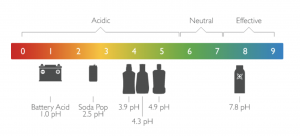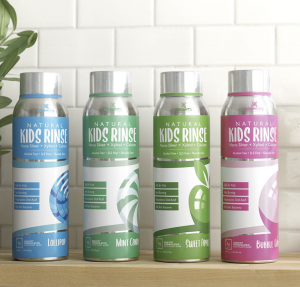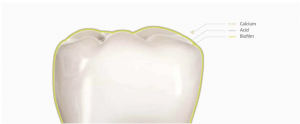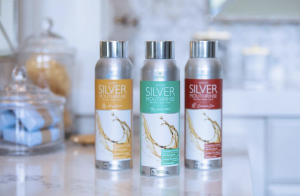
The Pros and Cons of Fluoride: Why We Choose Nanosilver
Imagine a month, a week, or even just a day without any teeth. Now imagine if dentures never existed. You pass by a restaurant and you smell a delicious steak being grilled. You take a seat and order one. As soon as your meal reaches your table, you take a fork and a knife to cut a delectable piece of meat right before sinking your teeth into it.
Whoops. Almost forgot that you don’t have teeth, didn’t you?
That’s how important our teeth are and how sad we’ll be once we’re unable to eat delicious, solid food. Sure, you can get dentures in case you lose a couple of teeth due to cavities, but it’s cheaper to just take good care of your teeth in the first place with a good fluoride mouthwash and toothpaste.
The Cavity’s Greatest Fear
Good oral health is the foundation of a healthy and confident life. Having strong and healthy teeth is essential for eating and speaking comfortably, but how exactly do we achieve that? Our teeth are known for being tough on their own but they need to be taken care of as a thank you for the hard work they do for us.
Brushing, flossing, and gargling are the most basic requirements for taking care of your teeth, but in order to effectively maintain them, you should be aware of what’s inside the products that you are using. And most, if not all, of the products you will see in the market, as far as teeth are concerned, is fluoride.
You see it in toothpaste boxes, and you also see it in commercial ads, but what exactly is fluoride, and what does fluoride do for your teeth? Fluoride is a naturally occurring mineral that can help protect your teeth against cavities and decay, as well as strengthen and remineralize weakened enamel. However, when you dive into the research, fluoride isn’t exactly the Romeo to the Juliet of cavities – it is more of a Superman to kryptonite relationship. One weakens and gets rid of the other with often and prolonged contact.
Let’s first talk about the benefits of fluoride. The use of fluoride in dental care has been proven to be a highly beneficial practice for many individuals. Fluoride helps to strengthen and protect tooth enamel, making it more resilient to decay. It can also reduce the risk of cavities and tooth decay, even in areas where brushing and flossing are not feasible. Fluoride can also reduce the risk of periodontal disease and help to keep gums healthy. In addition, fluoride can help to reduce the risk of tooth loss due to decay, making it an essential part of any dental care regimen. Its use is highly recommended for both adults and children and can be found in many over-the-counter products such as toothpaste and mouthwash.
The Truth About Fluoride in Toothpaste and Other Oral Hygiene Products
There are numerous ways to get fluoride into your system, and as stated earlier, using products with fluoride in it is the most common way this can be achieved.
While it is true that the majority of dental products contain fluoride, what makes them different from one another is the level of fluoride content depending on what type of product is being used. In fact, even the community water that is provided within your residence is equipped with this tooth decay-fighting agent. While toothpaste and dental floss have fluoride in them, it’s not enough to really make a difference. The fluoride gel and varnish applied by your dentist contains more fluoride and will be more effective in that environment.
That does not mean that one is better than the other though and that you only need to focus on one method of adding it to your system. The trick to protecting your teeth with a layer of fluoride coating is to constantly apply it. Simply brushing, flossing, and rinsing with a fluoride mouthwash would be enough, but you may want to protect yourself from the inside out by doing that plus visiting your local dentist regularly. With the combination of both, cavities will surely not be an issue for you.
Even though fluoride has been the standard for years in dentistry, it has been linked to a variety of negative effects when consumed in large amounts. Over-consumption of fluoride can lead to symptoms such as gastrointestinal disturbances, headaches, lethargy, and even skeletal fluorosis, which is caused by a buildup of fluoride in the bones. Additionally, fluoridation of water has been linked to an increased risk of cancer in some studies, although more research is needed to confirm this. While the benefits of fluoride are undeniable, it is important to monitor fluoride intake to ensure it does not reach a dangerous level. Furthermore, alternative sources of fluoride, such as toothpaste, gels, and mouthwashes, should be considered to reduce the risk of overexposure.
So, Is Fluoride Bad For You?
The short answer is no, but fluoride is not that high and mighty, though. Fluoride may have been a superhero for your teeth, but do not start thinking that it alone will be enough to save you.
As everyone knows, too much of something is bad for you, and the same goes for fluoride. Sure, it does not happen that much overall, but it is better to be aware that too much fluoride can backfire on you – it can damage your teeth from the inside instead of protecting them, or worse, you may get overdosed and get sickly because of it.
Worst case scenario, too much fluoride can kill you, but this happens very rarely and is caused by ingesting much more fluoride than you could consume with a regular brushing and fluoride mouthwash rinsing routine.
The Consequences of No Fluoride
Looking at the other side of the coin, no fluoride at all also gets you into bad territory. Not only will you deal with your teeth breaking, or even losing your teeth entirely, but toothaches and gum inflammations will be also your constant enemy – not only is it a threat to your wallet for visiting the dentist and taking medications and unnecessary treatments amounting to ridiculous amounts of cash, but it will also affect your performance either at work or school, which can end up ruining your life, both figuratively, and even literally.
You heard that right, a broken tooth can kill you. How you may ask? Cavities in your teeth will make you prone to gum infections such as gingivitis and periodontitis, which can seriously injure your gums. That, of course, is an opportunity for other harmful elements such as bacteria and viruses to invade your system, and eventually, if everything is left unchecked, it will attack you from the inside.
What More Can You Do To Get Your Teeth Going
Please do take note that fluoride works not by attacking any cavity-inducing bacteria that comes to your teeth – fluoride instead serves as a wall of protection to repel the bacteria from coming inside your precious teeth. And like with other protective gear, it can suffer from wear and tear with constant attacks. That’s where your lifestyle comes in. Your job is to make sure that your teeth will not get too much cavity-making bacteria to work on, for it to successfully protect your teeth every day.
To achieve this, you must first know what your greatest risks are with regard to cavities. Aside from minimal to no dental care, both at home and with your dentist, the food you eat can also be a major cause of cavities – and not just the food you eat itself, but also how you consume it.
Studies have already proven that both poor diet choices and constant eating can and will put your oral health under scrutiny. Always remember to take care of yourself at all times, and your teeth will thank you for it. Because if not, what would even be the purpose of the fluoride shielding your teeth?
Using a Good Fluoride Mouthwash
Don’t forget that you have to pair the good habit of brushing and flossing your teeth, as well as dental check-ups with rinsing your mouth. A good fluoride mouthwash can be what makes or breaks your oral hygiene regimen. However, not all mouth rinses are made the same. Some mouthwashes use ingredients that can do more harm than good, so make sure you choose a mouthwash that protects your mouth from bacteria using non-toxic non-burning antiseptics. A great example is mouth rinses that use nano silver technology, which is definitely worth giving a try.
Alternatives to Fluoride
With all that being said, there are different courses of action you can take instead of using fluoride. Fluoride alternatives are growing in popularity due to the many health concerns associated with fluoride. Examples of alternatives include xylitol, calcium, arginine, and nanosilver. Xylitol is a naturally occurring sugar alcohol that has been shown to reduce levels of bacteria in the mouth while also providing a sweet taste. Calcium is what our teeth are made of. With Elementa’s fluoride alternative, we found that we were able to penetrate the biofilm more effectively providing higher levels of calcium to the teeth, helping to better the remineralization process. Each of these fluoride alternatives can provide the same benefits as fluoride without the same level of risk, making them appealing to many consumers. In conclusion, fluoride is a beneficial mineral that helps prevent tooth decay. However, it is important to be mindful of the potential negative side effects it can have, as well as the availability of fluoride alternatives. By educating ourselves on the benefits and risks of fluoride, we can make the best decisions for our oral health and dental hygiene.
So, What Does Fluoride Do For Your Teeth?
As you’ve just learned, fluoride does a lot to and for your teeth! However, too much of anything can become harmful. With the numerous products that there are today on the public market and the scientific studies that have proven the benefits of fluoride with regard to our oral hygiene, fluoride can be a true blessing. On the other hand, plenty of research shows that fluoride might not be our best option. We’re not anti fluoride but we believe in progress. When science shows something revolutionary, we can’t ignore it! At Elementa, we have found the most effective way to take care of our teeth through the use of nanosilver. We found that nanosilver works 3 times more effectively than fluoride without any of the negative side effects! Our products can ensure that you will eat peacefully and it brings out the true beauty of your smile. With nanosilver on our side and with consistent care, your oral health will be A-OK.
So go out there and smile – your smile should get noticed. Learn more about Elementa’s nanosilver mouthwash, toothpaste, and other oral hygiene products with nanosilver technology today!




